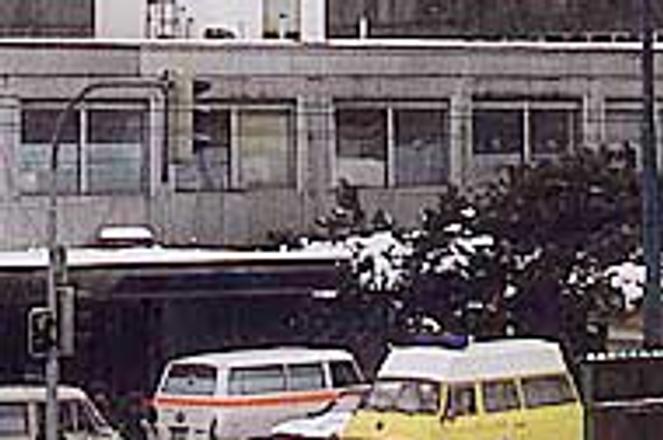ONE fourth of Slovakia's hospitals are "on the point of collapse" because of crippling debt and ineffective management.photo: Ján Svrček
IF A PLAN by Health Minister Rudolf Zajac to "extensively reduce" the number of hospitals in the country is carried out, some patients might have to travel hundreds of kilometres for treatment, doctors have warned.
Zajac's reform plan outlines changes in all spheres of health services, including redesigning the drug policy, cutting down medical staff, letting licensed nurses work on individual contracts, and creating a competitive environment so that only the best hospitals survive. To be implemented, the plan must be approved by parliament.
Some doctors have warned that Zajac's approach may lead to certain areas of the country being left with no health care services at all, or "white spots on the map of Slovak health care," as Juraj Štofko, head doctor at the neurology clinic of Bratislava's Fakultná Hospital, put it.
In his reform strategy paper, Zajac claims that Slovakia has too many hospitals, hospital beds and staff.
Before taking office, Zajac suggested that as many as one fourth of the country's 78 hospitals were on the point of collapse because of the massive indebtedness of the sector - estimated to reach Sk26 billion ($637 million) by the end of 2002 - and the ineffectiveness of the country's health care system in general.
Zajac thinks that hospitals must start behaving responsibly and not rely on the state to help cover up the mistakes of hospitals' management teams.
"To achieve effectiveness it will be necessary to liquidate whole (health care service) blocs," states Zajac's reform strategy paper. "Only those that can make their own money will survive."
But some doctors, like Štofko, claim that the minister's reform theory confuses hospitals with shops.
"Building a hospital is not the same as opening a new boutique. If a boutique goes bankrupt, a new one will open. A hospital, on the other hand, is a strategic investment made by the state, with a value of several billion crowns.
"We can't let district hospitals go bankrupt anywhere in Slovakia just because they work inefficiently. Nobody will build a new one next door," he said.
According to Zajac, hospitals must learn to compete for their patients, for example by specialising in certain areas rather than offering a whole range of low-quality medical services.
Thus one high-quality eye clinic would serve several neighboring towns, with people having to travel to see a specialist, rather than each town having its own eye clinic, as is the case today. The minister believes this approach will increase the quality of services offered and make best use of the limited health budget, which for 2003 was set at Sk60 billion ($1.5 billion).
"It is comfortable to have throat, skin, and eye departments in every town hospital, but living with a Sk60 billion budget shall force us to form just one fine eye department for every three towns and one cardio centre for every four towns," Zajac said.
But doctors claim that most Slovak patients can hardly tell between high- and low-quality health care, and insist that high-quality service should be automatically guaranteed by the system.
"It is not true that the patient can evaluate the quality of health services. He can appreciate a few outside phenomena such as the hospital building's facade, good interior design, or smiling personnel. But the patient cannot really tell what high-quality health services are. It is well known that if a doctor wants, he can persuade a patient that all [tests] are inevitable," Štofko said.
A hospital director who spoke to The Slovak Spectator on condition of anonymity said that the closure of hospitals and the ensuing extra travel for some patients might, in certain areas, also cause social problems.
"If our hospital was closed, some of our patients would have to travel as much as 100 kilometers to get to the nearest hospital," he said. "I don't think that would make them very happy."
Zajac also said he wanted to take measures to control Slovakia's extensive prescription drug system, which wastes or wrongly prescribes between Sk3 billion ($71.4 million) and Sk5 billion ($119 million) worth of drugs every year.
He said that every year about 37 tons of expired drugs, worth about Sk1 billion ($23.8 million), are returned to pharmacies. Added to that are drugs prescribed but unnecessary for treatment and drugs prescribed in bigger doses than necessary.
"Over the last 60 years it has become a custom here that a patient gets a prescription every time he goes to the doctor," Zajac said, suggesting that his plans to have patients pay Sk10 or Sk20 for each prescription could partly cut down the number of wasted drugs.
To eliminate the unnecessary use of hospital beds, Zajac wants patients to pay about Sk150 ($3.50) for every day spent in hospital. Zajac claims that many patients who are occupying hospital beds today could be just as effectively treated at home by contract nurses.
But Štofko believes that the introduction of such a "neo-liberal" element in the health care sector, on the assumption that the market will solve everything, is "dangerous and irresponsible".
"There can't be white spots on the map just because there are ineffective hospitals in those regions, just because insolvent patients who can't pay for services because they are unemployed live in those regions," Štofko said.
But the minister insisted that reform in the health sector was a priority.
"Time is running out for hospitals with no patients and with ineffective management teams," said Zajac.


